The developing discipline of quantum archaeology suggests a provocative idea of reconstructing past states of matter including human awareness. My investigation of quantum information theory has uncovered intriguing ramifications for the theoretical feasibility of recovering past events from quantum states. This contentious area proposes that the quantum information of past events might never really be lost, only dispersed. Quantum archaeology has consequences that transcend simple theoretical physics into philosophical and ethical spheres. New advances in quantum computing have spurred fresh enthusiasm about the prospect of recovering prior quantum states. The field tests our grasp of the arrow of time and information preservation. Researchers are looking at whether quantum entanglement might indefinitely maintain knowledge about past states. Although the practical prerequisites for quantum archaeology would be astronomical, physicists find great fascination in the theoretical framework. These ideas are challenging us to reevaluate basic concerns about consciousness, identity, and the meaning of time itself.
Table of Contents
- The Physics of Information Preservation
- Theoretical Framework for Historical Reconstruction
- Ethical Implications of Bringing Back the Essence of a Loved One
- Extra’s:
The Physics of Information Preservation
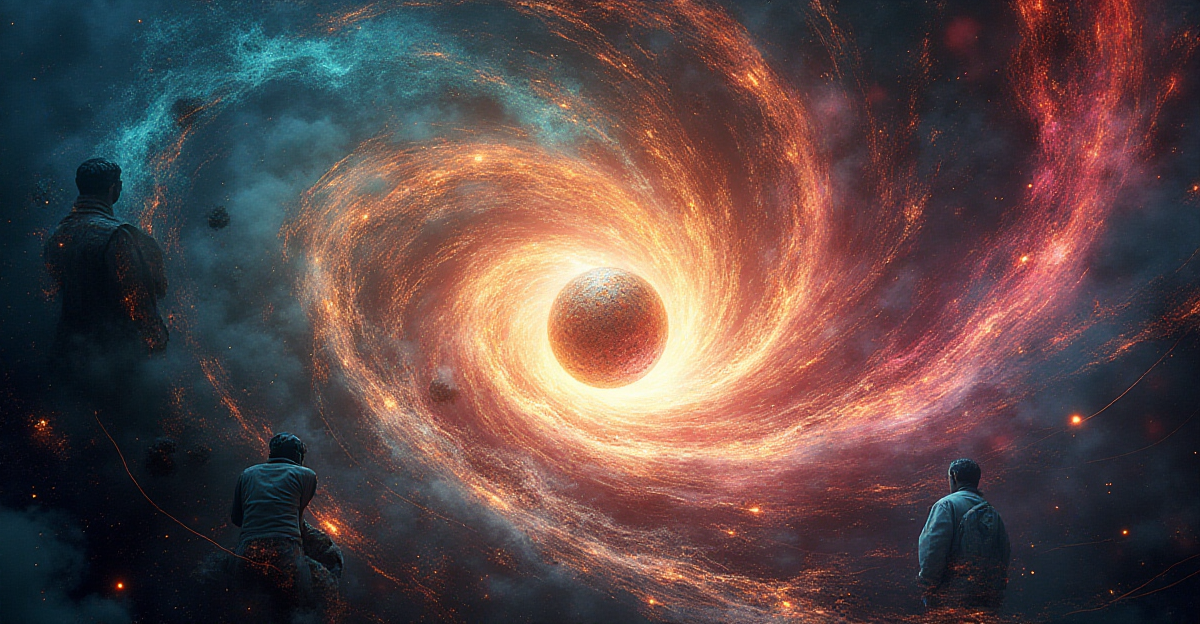
Imagine a society in which we could go back in time to better grasp the past rather than to change it. Reliving a particular event or learning about the ideas of historical people would be amazing. Although time travel is still a notion from science fiction, quantum archaeology is a new branch of research looking at how knowledge about the past might be kept inside the fabric of reality. This fascinating discipline explores quantum information theory, which underlines how, driven by quantum mechanics, information is encoded and maintained at the fundamental level of the universe.
Exploring the Quantum Realm
Quantum archaeology looks at the possibility for quantum realm preservation of knowledge about past states. Like stitching together a broken mirror, we are working with the complex dynamics of quantum entanglement, instead of glass. Two or more quantum particles become entangled, their destiny entwined even when they are separated by great distances. This generates the fascinating idea of quantum resurrection, in which we might be able to replicate past quantum states. Imagine being able to precisely momentally capture a particle’s quantum state. Could we then replicate that precise state, therefore resurrecting it from its past? This amazing concept has possible uses in historical reconstruction, clarifying the riddles of consciousness, and even investigating the prospect of recovering lost memories.
Consider a real-world scenario whereby one studies the brain of a historical person by means of quantum resurrection. We might be able to reconstruct their mental processes or memories by timing the capture of the quantum state of their brain cells. This could offer hitherto unheard-of understanding of historical perspectives on and interpretation of the world. Though it’s a difficult and demanding field, quantum archaeology presents fascinating opportunities for knowledge of the past in yet unthinkable ways.
Navigating the Ethical Landscape of Quantum Archaeology
There are several ethical questions regarding the possibility to maybe enter the consciousness of long-gone people. Consider the consequences for personal privacy, the possibility for abuse, and the difficult problems regarding the fundamental essence of consciousness. Should we be able to rebuild prior quantum states, we would have to define unambiguous ethical rules. Who could access this material? And how could we make sure that such a strong instrument is applied sensibly?
For instance, who would manage the knowledge if we could perhaps bring back the ideas of a historical person? Could it be used to alter historical perspective or for manipulation? Moreover, what consequences would this have for a person’s autonomy and free will should we be able to access and maybe control their quantum state of brain? As we explore the possibilities of quantum archaeology, these are only a handful of the difficult ethical conundrums we must answer.
Quantum archaeology presents an amazing window into the means by which the secrets of the cosmos and our role within it can be revealed. Still, this is a field that requires careful thought since its great promise must be balanced with the vital requirement for sensible growth and application. We have to build a paradigm for quantum ethics that guarantees the moral use of this transforming technology while we investigate the quantum universe.
Theoretical Framework for Historical Reconstruction
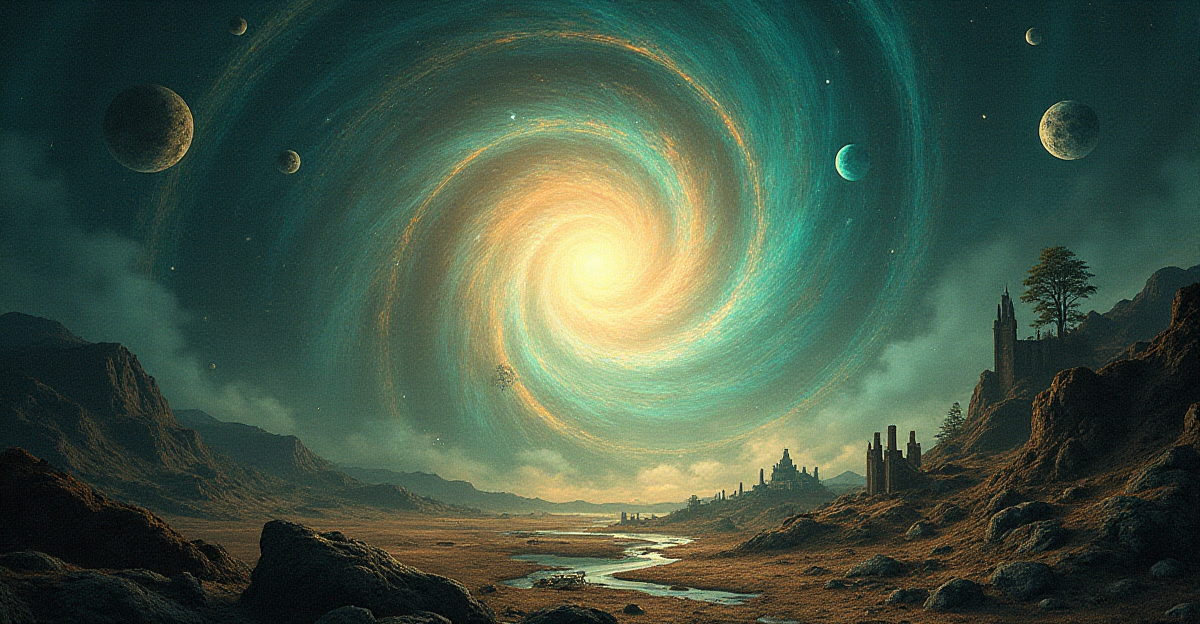
Imagine a time when historians could exactly replicate historical occurrences. How might this alter our knowledge of history? This is the intriguing idea of quantum archaeology, a discipline investigating the possibility of reconstructing historical events using quantum mechanical ideas. Quantum archaeology questions our knowledge of information theory and opens a way to a deeper, more complex knowledge of the past even as it is still in its infancy.
The Quantum Realm and the Past
Consider a police officer looking at a crime scene. The bits of evidence—a broken glass, a dropped glove, a scuffed floorboard—tell a story, a fractured narrative of what transpired. The interactions of particles in the quantum universe are like hints pointing to past events. In the quantum domain, even across great distances, particles can get entangled and their fates entwined. Like a secret thread tying past events to the present, this entanglement links.
This link among particles drives the concept of revisiting historical events. It implies that humans might be able to replicate prior quantum states, much like reversing a video to observe how a given event happened. This is where the idea of catching and comprehending past ideas or events finds application. Could we possibly rebuild the quantum state of a person’s awareness such that we may either recreate their memories or perhaps grasp their thoughts?
Ethical Considerations in Quantum Archaeology
Though quantum archaeology presents fascinating opportunities, they also generate serious ethical questions. Imagine, for example, the possibility to faithfully replicate a past event—a war, a natural disaster, or even a particular incident in someone’s life. Would this be a tool for comprehending or a weapon for changing the past? Regarding the autonomy and privacy of people engaged in these activities,
The quantum archaeology debate revolves much around quantum ethics. Deeper into the quantum sphere, we have to give great thought to the consequences of our activities and guarantee responsible application of this information. We also have to admit that there is possibility for abuse, including fabricating memories or rewriting history.
Real-World Applications of Quantum Archaeology
Imagine a historian examining the Battle of Gettysburg. Quantum archaeology would enable them to possibly recreate the chronology of the conflict, therefore revealing information that might otherwise be lost to history. This could offer insightful analysis of the tactics used by both sides, the course of the fighting, and the effect of individual behavior on the more general conflict.
Archaeology at quantum levels could potentially help to investigate past societies. Imagine building the quantum state of a vanished metropolis from its architecture, layout, and even daily life of its people. This would enable us to grasp the complexity of historical societies and their cultures in hitherto unheard-of clarity.
We travel of discoveries that might alter our knowledge of historical reconstruction, consciousness, and the universe itself as we keep investigating the opportunities of quantum archaeology. Like any strong instrument, though, we must approach this field with both curiosity and caution to make sure we maximize its possibilities for good and prevent unanticipated effects. Imagine a time when historians might precisely recreate past events. What sort of future that would that represent?
Ethical Implications of Bringing Back the Essence of a Loved One
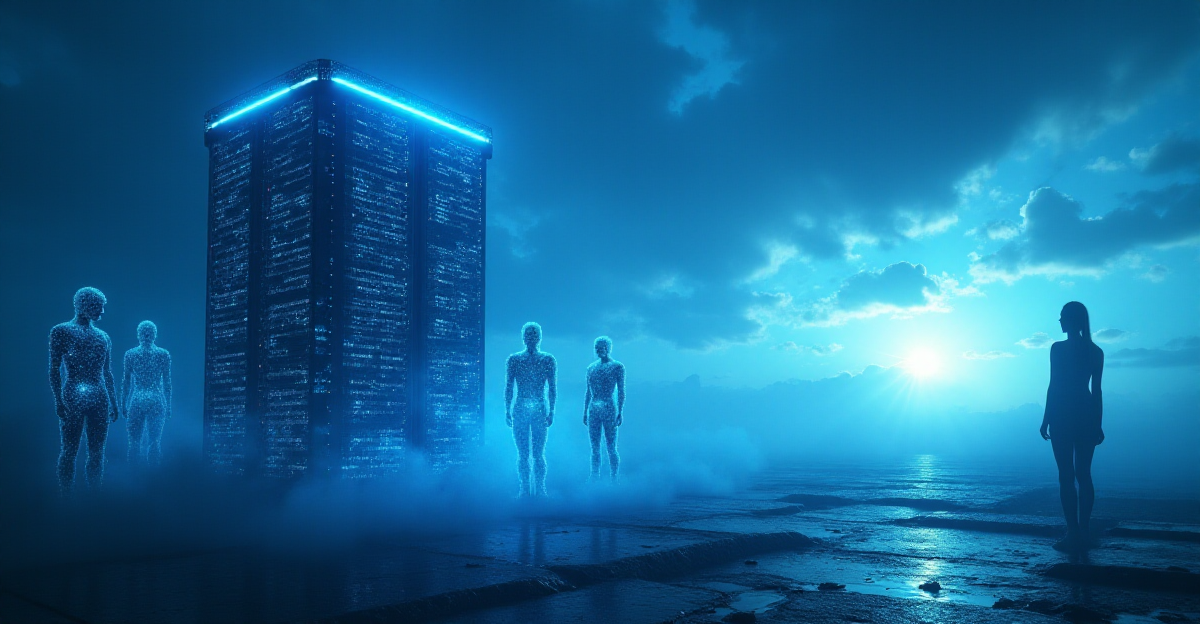
Imagine a time when we may resurrect the core of a loved one—not as a physical creature but rather as a digital copy of their memory imprint, therefore conserving their ideas, memories, and personality. Sometimes called quantum resurrection, this amazing idea has caught imaginations and spurred heated debates on the moral ramifications of consciousness preservation and historical reconstruction. Using cutting-edge information theory, this technology—also referred to as “quantum archaeology—sees to recreate a person’s “quantum state,” a detailed picture of their ideas, feelings, and memories.
Let’s first discuss what “quantum archaeology” means before we dig into this intriguing and ethically difficult idea. Imagine sifting among the ruins of a vanished civilization, finding bits of their culture and history. Though it focuses on reconstructing the “quantum states” of people from their digital imprints instead than actual objects, “quantum archaeology” achieves something similarly. To recreate their individual “quantum states,” this can entail examining their online contacts, social media posts, emails, even brain scans.
Facing the Ethical Challenge of Quantum Archaeology
Before we start down this road, “quantum archaeology” offers a complicated web of ethical conundrums that we should give great thought. Possessing a digital copy of someone we loved would mean what? Would it be a comfort or cause of heartache? Could we really replicate in this manner the core of a person?
With its promise of reconstructing “quantum states, quantum archaeology,” poses a special set of ethical questions. Let us explore some of the most urgent issues:
- Privacy and Control: Imagine having access to the deepest thoughts and emotions of a loved one through their reconstructed “quantum state.” This raises questions about the boundaries of privacy. Would this be an invasion of their personal space? Who would control and access this sensitive information? What safeguards would prevent manipulation or exploitation of someone’s digital representation?
- Identity and Authenticity: Would a digital replica of a person truly be the same as the original? Would they possess the same consciousness, “quantum states,” and self-awareness? Or would it be a mere shadow of their former self, lacking the genuine essence of the person they were? How would such a replica interact with the world and with those who knew the original person?
- The “Quantum State” of Being: What would be the legal and ethical status of a digital representation of a deceased person? Would they have rights and responsibilities? Would they be considered living individuals or digital entities? How would society define their “quantum state” of being and their place within the world? Imagine a “quantum state” as a snapshot of a person’s consciousness, a digital representation of their thoughts, feelings, and memories, captured at a specific point in time.
Navigating the Ethical Frontier of Quantum Archaeology
We must create a strong “Ethical Framework for Quantum Archaeology to guarantee that quantum archaeology” is applied sensibly and morally. The following important issues should be covered by this framework:
- Informed Consent: It’s imperative to obtain clear consent from individuals regarding the use of their data for “quantum archaeology.” We must ensure that they understand the potential implications of allowing their “quantum states” to be reconstructed. For example, would they want their “quantum state” to be shared with others, used for research, or simply kept private? Imagine asking a loved one before their passing whether they would consent to their “quantum state” being reconstructed after their death, ensuring their wishes are respected.
- Data Privacy: Implementing robust safeguards to protect the sensitive data used in “quantum archaeology” is paramount. We need to establish clear rules for data access, use, and storage, ensuring that this technology is used for good and not for exploitation. This involves addressing concerns like data breaches and unauthorized access.
- Transparency and Accountability: Open communication and collaboration with the public are crucial for the development and regulation of “quantum archaeology.” This involves informing the public about the technology’s potential benefits and risks, fostering open discussions about the ethical considerations, and establishing clear regulatory frameworks to ensure transparency and accountability.
Though it presents an interesting prospect, “quantum archaeology” begs serious ethical issues that should be given great thought. Before we go down this road, we have to have honest conversations and moral arguments. This technology has great possible influence on our knowledge of “consciousness preservation, information theory, and historical reconstruction,” which calls for a careful approach. We have to aim to apply this technology in a way that respects our values and defends personal dignity.
Extra’s:
If you’re curious about the potential for altering our understanding of life and death, you might find our post on “How Just Five Minutes of Exercise Can Lower Blood Pressure” interesting. Exercise can have a profound impact on our health, and understanding its effects can help us make informed choices for our well-being. Another fascinating area of scientific exploration is “Acoustic Levitation: How Sound Waves Are Revolutionizing Lab-Free Chemistry,” which delves into the world of manipulating matter with sound. Both of these topics explore the boundaries of our current understanding of science, much like quantum archaeology does.
Delving deeper into the theoretical underpinnings of quantum archaeology, it’s worth exploring the concept of “quantum mechanics of time travel” which explores the potential for manipulating time itself. This is a complex subject, but understanding the theoretical possibilities can help us grasp the potential implications of quantum archaeology. To delve further into the intricacies of entanglement, “On the Preservation and Manifestation of Quantum mechanics of time travel – Wikipedia Entanglement” provides an excellent scientific analysis of this fascinating phenomenon. This research is crucial for understanding the potential of quantum archaeology to preserve and reconstruct information from the past.
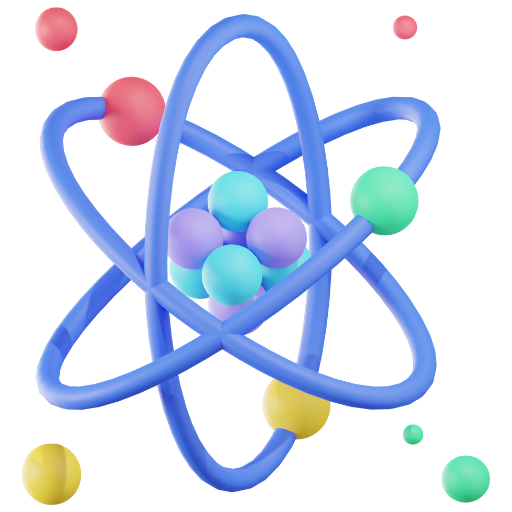
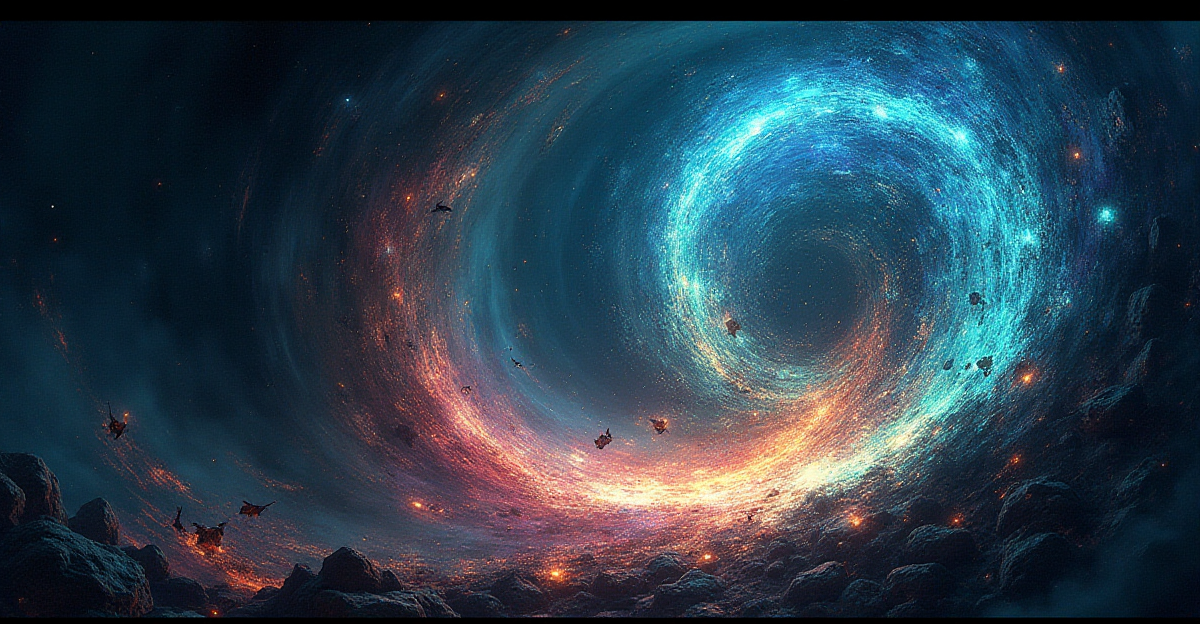

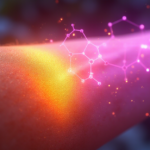



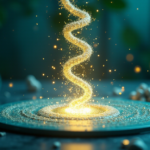

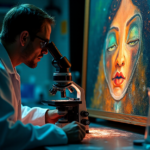


1 thought on “Quantum Archaeology: Could We Resurrect the Dead Through Quantum Reconstruction?”